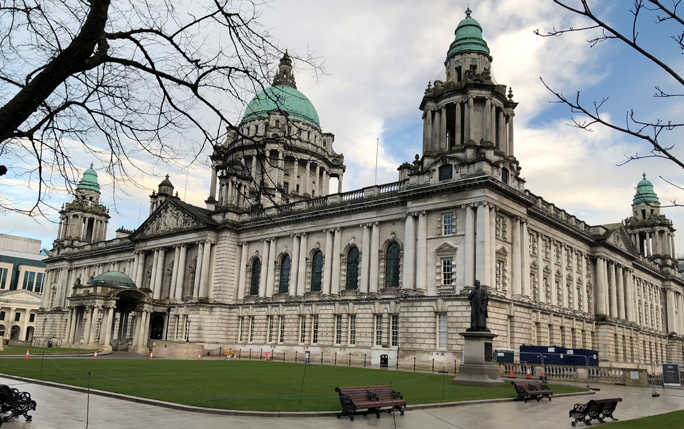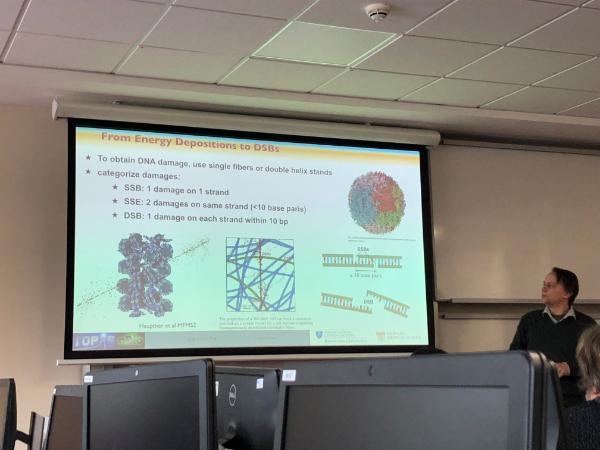QUASARs attend CREAM-1 Hackathon in Belfast

April 3rd – 6th was a week of exciting discussion and budding collaborations as Queen’s University, Belfast hosted a workshop on Computing Radiation Effects to Advance Medicine (CREAM-1), supported by the Global Challenge Network+ in Advanced Radiotherapy. The first 2 days acted as an introduction to TOPAS (Tool For Particle Simulation) allowing the delegates to become familiar with the software and its capabilities, and for the more experienced users to aid the beginners. Step by step exercises allowed users to simulate particle beams in various setups and interacting with a range of materials. TOPAS is a software built on top of Geant4, building on its capabilities in a user-friendly and easy to use manner. For example, it acts a powerful tool for the simulation of proton beams and how they may interact with patients during clinical treatment.
Invited talks were given by Joseph Perl and Jan Schuemann who have worked on the Geant4 collaboration and development of TOPAS and TOPAS-nbio respectively. They took us through how TOPAS can be used and how powerful of a tool it can be without the requirement of being an expert in Geant4. Prof Schuemann introduced TOPAS-nBio, an extension of TOPAS which works down at the micro- and nanometre scales, allowing beam-cell interactions to be modelled.

Jan Schuemann presenting an overview of TOPAS-nBio and its capabilities.
QUASARs Jacinta Yap and Selina Dhinsey whose work looks into simulating the proton beamline and cell interactions attended the workshop and found it a very insightful experience. The latter 2 days focused on a ‘hackathon’ in which small projects and discussions of mutual research interests were setup. This was the more interactive half of the workshop as it allowed for in depth discussions in regards to simulation specifics, with one-on-one guidance from experts who have developed the software. It also facilitated future collaborations, bringing together institutions with complimentary research and allowing experience to be shared between experts and those just starting out in the fields of radiobiology and and medical physics.